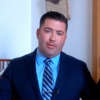
Colorado has made significant progress toward being a safe place for the LGBTQ community, but now that progress is challenged by reactionaries who are promoting misinformation and dusting off latent bigotry.
Anti-trans and anti-gay rhetoric in recent months has become increasingly vile. It’s showing up in schools, on the campaign trail, and social media. A surge of this kind of hate violates the rights of every Coloradan, and every person in the state is diminished to the degree bigotry is allowed to flourish.
Each resident should be attuned to it, and each can help attenuate it.
“I think it’s time we had a real first lady, don’t you?” said Republican Colorado governor candidate Greg Lopez said during a campaign speech last month. The reference was to Gov. Jared Polis, who when he was elected in 2018 became America’s first openly-gay governor. Polis is married to first gentleman Marlon Reis.
During Polis’ first campaign the primary response to his being gay was “who cares?” He was a trailblazer and made history, but the contest for the governor’s office was characterized by a welcome absence of anti-gay attacks.
The state has gone backwards. Lopez made LGBTQ discrimination a feature of his appeal to Republican voters — and they’ve rewarded him. He earned the most delegate support during the GOP’s state assembly, putting him ahead of Heidi Ganahl, who as a University of Colorado regent is the only Republican in Colorado elected to statewide office and at one time was considered the frontrunner.
But Lopez is part of a growing movement to malign LGBTQ Coloradans. The face of the Republican Party in Colorado, Rep. Lauren Boebert, is an outspoken participant.
“We require people to be 21 to purchase alcohol beverages, and 21 to purchase tobacco products,” she tweeted earlier this month. “Why is it so unreasonable to require people to reach a certain level of maturity before making life-altering decisions about their sexuality and identity?”
The notion that sexuality is a trait one makes a “decision” about betrays a — to be charitable — misunderstanding as inexcusable as it is dangerous. But it permeates other forms of emerging animosity toward LGBTQ Coloradans.
The state Board of Education is considering an update to K-12 academic standards that is meant to be more inclusive, including for the LGBTQ community. A flood of public comments reflected the extent to which homophobia and fears of “indoctrination and ‘grooming,’” as Newsline’s Chase Woodruff reported, motivates conservative residents.
If anti-gay rhetoric is mask-off, anti-trans rhetoric is angry-face.
“I am positive that if it were not for the fact that we have a homosexual for a governor that this hateful and perverted social studies proposal would not have been written,” one commenter wrote to the board. Another wrote, “The LGTBQ+ topics are totally inappropriate for school children … These topics were considered psychological issues just a few years ago and the science supports that. Doctors do not consider these to be healthy issues or lifestyles.”
The comments had their intended effect — a committee that worked on the draft standards later decided to drop language referring to LGBTQ people from kindergarten to third grade.
“Bias has been weaponized as a political tool throughout history, and today it is on our doorstep,” state Sen. Rachel Zenzinger, D-Arvada, said in response. She said the altered draft standards would “institutionalize bigotry.”
The backlash against inclusive standards echoed the conservative push for “Don’t Say Gay” school provisions in Florida and elsewhere, and it is one action that’s part of a broad effort to erase LGBTQ gains in Colorado and the country. As NBC News’ Ben Collins put it in late March, “It’s hard to express just how radicalized far-right spaces have become in the last month, in part because this new brand of radicalization is so specific. These spaces have become openly, aggressively, mask-off anti-gay.”
If anti-gay rhetoric is mask-off, anti-trans rhetoric is angry-face. Virulent transphobia increasingly darkens conservative discussions, as exemplified by Rep. Marjorie Taylor Greene referring to “mentally disturbed men in wigs” and Boebert’s attention-seeking U.S. House resolution to recognize an NCAA swimmer who came in second to a transgenger athlete as the “rightful winner” of the women’s 500-yard freestyle in March.
Colorado has come a long way since it was dubbed the “hate state,” after voters in 1992 adopted Amendment 2, which prohibited state and local governments from enacting protections for gay, lesgian and bisexual people. The Supreme Court struck down the amendment, saying it violated the Constitution’s equal protection clause.
But now the state is rediscovering its ability to discriminate as anti-LGBTQ influences rise worldwide.
“I’m scared by our resurgent popularity as scapegoats,” wrote New York Times columnist Frank Bruni, who is gay, “not just here but in Poland, in Hungary, in Russia, where Vladimir Putin casts himself as a righteous warrior against Western permissiveness.”
Coloradans must treat attacks against gay and trans residents as attacks against all residents. They must resist bigotry and choose not to backtrack on civil rights but rather to further secure and expand them.
This article originally appeared in Colorado Newsline, which is part of States Newsroom, a network of news bureaus supported by grants and a coalition of donors as a 501c(3) public charity. Colorado Newsline maintains editorial independence. Contact Editor Quentin Young for questions: [email protected]. Follow Colorado Newsline on Facebook and Twitter.




